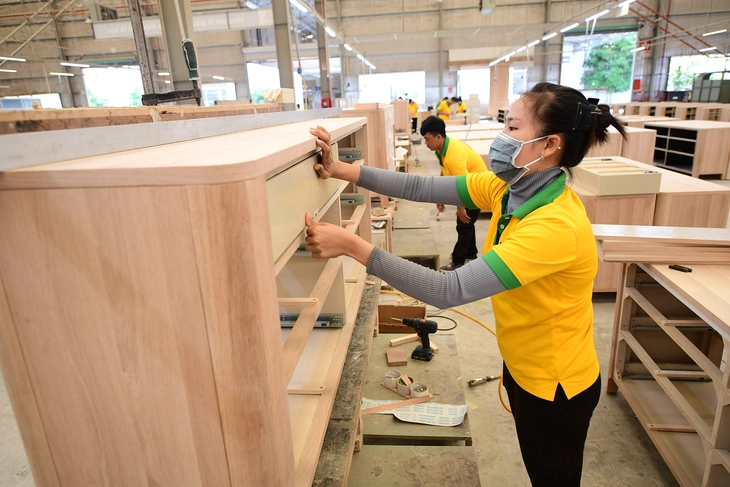
Enterprises exporting wood products in Tay Ninh to the US expect positive results from tariff negotiations between Vietnam and the US - Photo: QUANG DINH
Many US importers are shifting their orders from Vietnam to China, so businesses are expecting a more positive outcome in tariff negotiations and improvements in the supply capacity of Vietnamese exporters.
Previously, as soon as the tax order was issued, many US importers could not buy goods from China, so they had to contact suppliers in other countries, including Vietnam, to find alternative sources of goods.
US businesses seek new suppliers in Vietnam
The discussion between VIETGO Export Promotion Company Limited - a unit specializing in consulting and promoting exports - with more than 200 importers and exporters from Vietnam and the US took place enthusiastically, when many businesses importing to the US commented that the US's reciprocal tax policy applied to other countries, especially China, could open up opportunities for Vietnamese exporters.
Moshe Mayer, who owns an import company with many private brands, said he is buying clothes hangers and household items in China to sell to Walmart supermarket chain in the US.
However, with the high reciprocal tax rate that the US imposes on China, Mr. Moshe Mayer said that the company's import activities are facing many difficulties.
However, challenges always come with opportunities, because as this tariff war escalates, the company is forced to diversify its supply sources, minimizing risks in a volatile context.
According to Mr. Moshe Mayer, this is a great opportunity to diversify the market, especially in the context of Vietnam actively negotiating taxes with the administration of US President Donald Trump.
"Therefore, I really hope you will try to negotiate tax rates to avoid high tax rates. Having good negotiation results will create opportunities for Vietnamese businesses to expand their market to the US. We are currently in great need of finding alternative suppliers, so we are very open to Vietnamese businesses and want to buy goods from you" - Mr. Moshe Mayer shared.
Meanwhile, Mr. Shaukat Sindhu, owner of another business specializing in importing furniture, said he had anticipated changes in US tariff policy, so he proactively went to Vietnam to find new sources of supply.
However, the problem encountered when coming to Vietnam is that suppliers have not really met the demand when businesses offer products taken from... the internet instead of real products manufactured in factories.
There are even cases where suppliers make appointments with customers but do not show up, causing him to waste time and money arranging meetings with suppliers. However, according to Mr. Sindhu, if Vietnam and the US negotiate effectively on tariffs, it will be an opportunity for businesses to expand their partnerships.
"The demand from US importers to find alternative suppliers to China is increasing, so businesses will have many options to cooperate," said Mr. Sindhu.
Hoping for successful negotiations, Vietnamese businesses improve their capacity
Having been to Vietnam four times to find partners to supply products such as hot stones, roofing panels, flooring, carpets, etc., Mr. Jeffrey Matoff, who is in the hotel business, said that although he has been importing goods from China for 10 years, he still wants to find additional suppliers.
But after working with a number of Vietnamese businesses, Mr. Jeffrey Matoff realized that the ability to supply goods did not really meet all actual needs.
Therefore, Mr. Jeffrey Matoff expressed his hope that the Vietnamese Government would try to negotiate with the US to get the best tariff results, helping businesses improve their competitiveness and take advantage of orders shifting from China to Vietnam.
Similarly, Mr. Richard Wyche, who specializes in wooden doors, kitchen cabinets, and flooring, also said he is looking for sources of goods but is having difficulty.
Because the number of orders from businesses is very large, but the supply capacity from Vietnam is still limited, not meeting all the items that the company needs. Therefore, Mr. Richard Wyche hopes that in addition to the tariff advantage, businesses need to further improve their supply capacity, produce with large output, and ensure quality according to orders.
"This is a limitation of Vietnamese businesses, while China can fully meet our order needs and the price is also much cheaper" - Mr. Richard Wyche shared.
Mr. Muhammad Rizk - specializing in importing agricultural products from other countries - believes that the US is a huge and potential market for exporters. With the belief that "in danger there is opportunity", when the US imposes tariffs on other countries, but Vietnam still has certain advantages, he hopes that Vietnam can negotiate with good results on tariffs so that Vietnamese suppliers can seize this opportunity and boost exports to the US.
Mr. Nguyen Tuan Viet, director of VIETGO Company, also said that Vietnamese exporters expect the tariff negotiations between Vietnam and the US to be successful.
In particular, the two countries will build a tariff program in accordance with the spirit of the Comprehensive Strategic Partnership established since 2023, with complementary trade cooperation potentials in many industries and fields, bringing practical benefits to the people of the two countries.
"We will strive to connect and bring the best opportunities for Vietnamese exporters and US importers, creating an efficient supply chain of goods.
After the tax order was issued, with the sharing of importers, the demand for orders from Vietnam may increase in the coming time, which has helped us be more proactive in exploiting the available advantages. Therefore, the most important issue right now is that we hope the tariff negotiations will be successful so that businesses can take advantage of this opportunity" - Mr. Viet expressed.
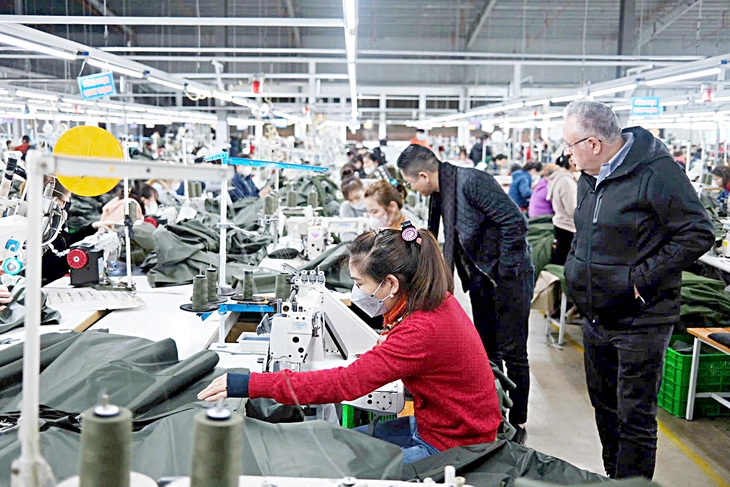
Many American businesses have expressed their desire to find suppliers from Vietnam to avoid high US taxes on China - Photo: B.THUAN
Waiting for negotiation results
Mr. Pham Xuan Hong - Chairman of the Ho Chi Minh City Textile, Garment, Embroidery and Knitting Association - shared that the US's high tariffs on China have also caused a shift in orders from this country to Vietnam. However, most importers are still waiting for the results of the ongoing tariff negotiations between Vietnam and the US.
So far, businesses are focusing on previously signed orders, while new orders are still more reserved. Therefore, production plans after June and July are still unclear, when the tax rate that the US is imposing on Vietnam is up to 48%.
"The shift is there, but only small orders are paving the way. Businesses are trying to find every market to get a little more new orders, but it's really hard to find markets.
So now we are trying to maintain current orders, ensuring the jobs of workers so that when the situation is brighter, we can still keep a relatively stable workforce. Next is cutting unnecessary costs to maintain general operations" - Mr. Hong shared.
Accordingly, businesses all wish to propose that the State pay attention to postponing the collection of taxes, fees, land rent, corporate income tax, VAT... to reduce cost pressure.
At the same time, businesses expect tax negotiations to bring positive results with favorable tax rates to be able to compete with countries specializing in textile exports and maintain the US market.
Many US retailers support Vietnam to achieve good results in tax negotiations
On May 7 (US time), Vietnam and the US officially entered the reciprocal tax negotiation round. Before that, the Vietnamese technical negotiation delegation arrived in the US and prepared for the important negotiation.
Commercial Counselor Do Ngoc Hung, head of the Vietnam Trade Office in the US, said that leading consumer goods corporations in the retail sector such as Walmart, Target (importing from Vietnam accounts for 30%), Costco, HomeDepot... in a meeting with President Donald Trump sounded the alarm that the tariff policy is negatively affecting consumer psychology and causing pressure to increase prices.
Trade and economic uncertainty makes consumers more cautious about spending, which will have a clear impact on business results because if it lasts for just a few weeks, store shelves will be empty.
Therefore, many large US enterprises have expressed their support and confidence that Vietnam will reach a reciprocal tax negotiation agreement. At the same time, many enterprises are also considering attending the International Sourcing Event organized by the Ministry of Industry and Trade in September 2025 in Vietnam (Vietnam International Sourcing Expo 2025).
Source: https://tuoitre.vn/nha-nhap-khau-my-tim-don-hang-tu-viet-nam-20250509004455567.htm








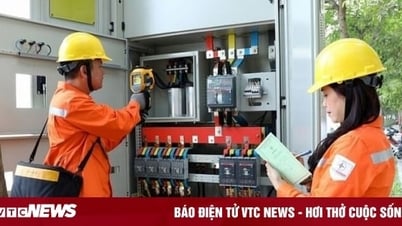











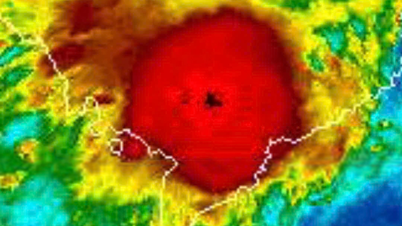



![[Photo] General Secretary To Lam meets with Chairman of the Federation Council, Parliament of the Russian Federation](https://vphoto.vietnam.vn/thumb/1200x675/vietnam/resource/IMAGE/2025/5/10/2c37f1980bdc48c4a04ca24b5f544b33)
![[Photo] Ho Chi Minh City: Many people release flower lanterns to celebrate Buddha's Birthday](https://vphoto.vietnam.vn/thumb/1200x675/vietnam/resource/IMAGE/2025/5/10/5d57dc648c0f46ffa3b22a3e6e3eac3e)











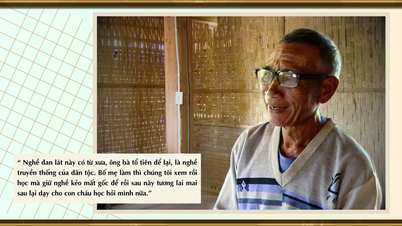

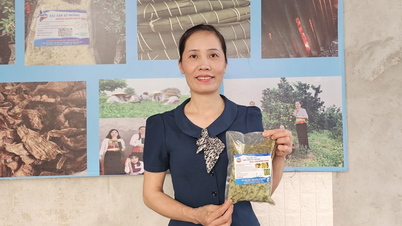















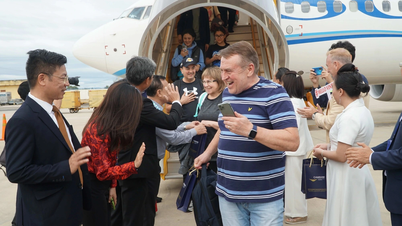



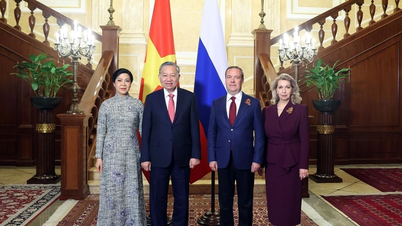







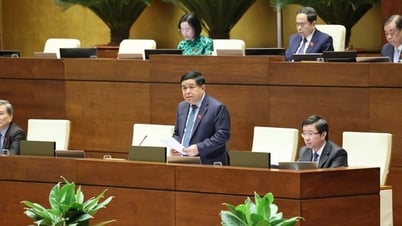

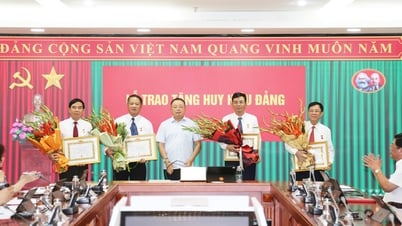
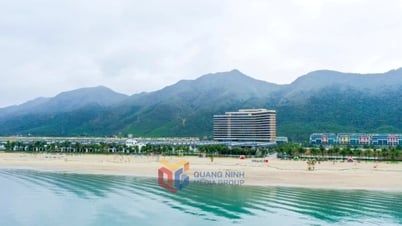

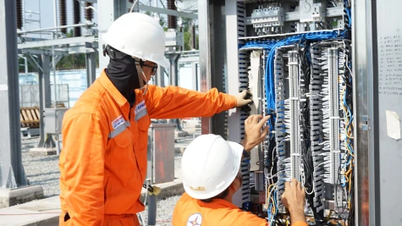

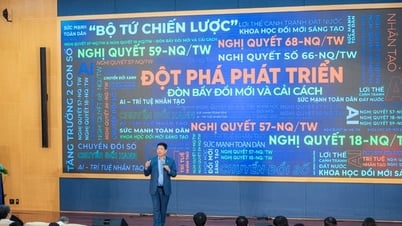



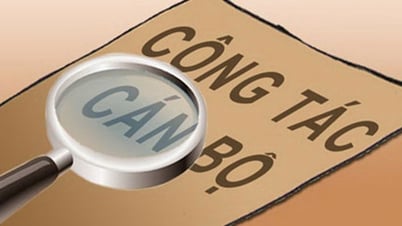













Comment (0)